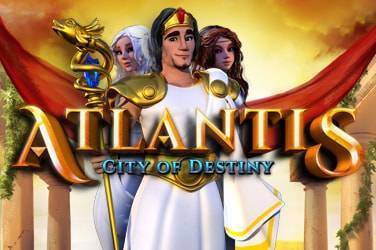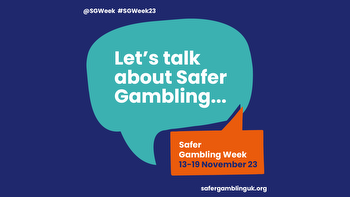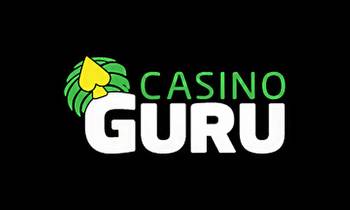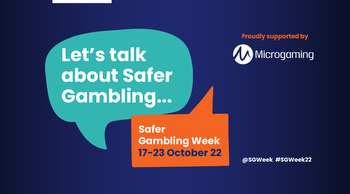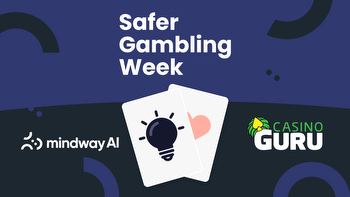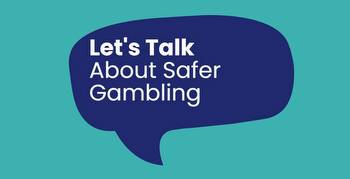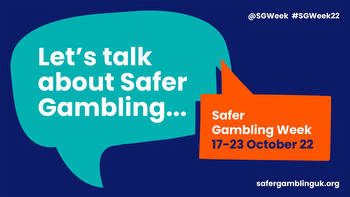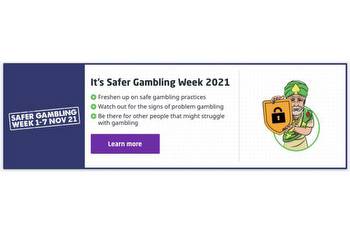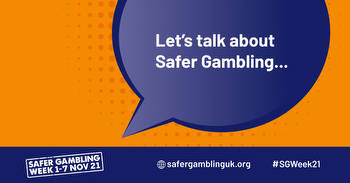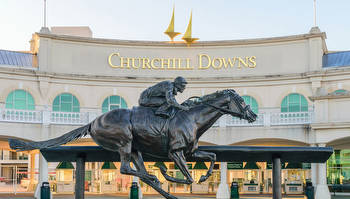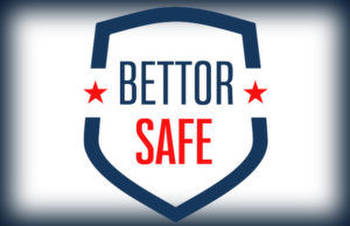Safer Gambling Week 2021: 5 highlights from a record-breaking event

Problem gambling is a serious issue around the world. Studies suggest that as many as 1 in 12 people gamble at risky levels that can easily develop into an addiction, and the increase in betting options in the digital era adds fuel to the fire.
As a public health issue, it has led to important awareness campaigns in recent years, particularly in well-regulated gambling industries. In the UK, the regulator Gambling Commission (GC) works with several charities to promote safe gambling and provide addiction treatment. Gamcare is one of them, and in 2017 it set up a week of events aimed at providing safety tips and safe gambling tools to those who need them.
Now in its fifth year, the campaign, known as Safer Gambling Week, has just enjoyed its most successful event yet, featuring initiatives from non-profit organisations and betting firms aimed at spreading the safe gambling message.
How has Safer Gambling Week evolved?
An organized focus on safe gambling in the UK hasn’t been around that long. It was only in 2014 that five British gambling associations created the Industry Group for Responsible Gambling (IGRG) to promote safe play across the industry.
Responsible Gambling Week was the product of their efforts – a six-day event that first took place in October 2017. From an initial focus on gambling messaging, the event has since grown across the sector, with more gambling organizations signing up and taking part each year. Typical features included talks from problem gamblers about their experiences and the sharing of safe gambling resources and tools.
Last year, the initiative changed its name to Safer Gambling Week and social media has been a key factor in its expansion since. The 2020 event generated almost 21 million impressions across Twitter, Facebook, and Instagram – the number of times that SGW content was displayed across the platforms. This jumped to 25 million for this year’s event, making it the most-viewed event so far. Celebrities such as boxer Anthony Joshua, ex-footballer Michael Owen and jockey Rachel Blackmore all publicly backed the campaign.
The 2021 event sparked a wave of initiatives across the gambling industry that contributed to the campaign’s success.
Here are five notable examples.
Gambling charities
Non-profit organizations played a key part in driving the Safer Gambling message across. Gamcare is an independent charity that focuses on problem gambling support. To mark the occasion, it published new research on gambling awareness, with a particular emphasis on women and betting. Its program GamAware has provided substantial funding in the area, including a $335,000 donation to a separate research team on 12th November.
It also provided updates on its TalkBanStop campaign, a three-stage gambling recovery program, and posted a series of ads about its National Gambling Helpline. This is a free service that provides information and advice 24 hours a day, seven days a week.
Fellow charities, YGAM and Betknowmore, meanwhile, made training the centre of their plans. Their aim is to help young people with betting problems, so they targeted community figures like teachers, health professionals and youth workers by giving them safe gambling workshops. The two non-profits also worked in tandem to give courses to industry leaders and operators, in the hope that they will make better-informed decisions when it comes to advertising and special offers.
All of the above charities have been involved with SGW for several years, but 2021 marks the most sophisticated effort yet to tackle problem gambling and keeping players safe.
Online resources
Internet gambling has become the dominant form of betting, creating a need for educational online resources. Casino Guru is at the forefront of this industry. As one of the biggest databases of online casinos around, it seeks to help players in multiple ways including producing responsible gambling content aimed at educating players. However, its team noticed something concerning. According to them, many people only search for help after they experienced the first signs of addiction.
Accordingly, the Casino Guru team came up with an experiment for Safer Gambling week: a series of striking responsible gambling messages designed to grab the player’s attention. These took the form of slogans which they placed on distinctive banners, each one containing a link to a related article that built on that message.
It was a useful exercise in seeing what works. The website’s team found that the message deemed to be the most catchy – Responsible players do not lose – drew the most clicks but had the least users spending a minimum of 60 seconds reading its related article. In contrast, the more uniformIt’s Safer Gambling Week 2021 attracted the fewest clicks but had the most readers lingering on its article.
While these stats are useful for future content, Responsible Gambling Projects Lead Simon Vincze said the main intention was to spread awareness and that if the content helped just one person think about their gambling, then it would be a success. He also mentioned how the initiative will serve as a launchpad for future safer gambling campaigns from Casino Guru, and possibly other online resources.
EGR Safer Gambling Forum
The pandemic has made it difficult to hold public events during the week, but EGR – a leading online eGaming publication – created the first-ever Safer Gambling Forum this year. Consisting of three 90-minute webinars over the first three days of November, it brought together nine professionals from various sectors of the gambling industry, including charities, online casinos, and support groups. The agenda went as follows:
Day 1: Operator best practice: safer gambling initiatives in 2021
Day 2: UK safer gambling charity updates
Day 3: A spotlight on new safer gambling research
The event gave a platform for the speakers to share their progress in promoting safe gambling research and also to brainstorm future initiatives.
Event attendees could keep track of the event via its official site or an app, which live-streamed the conference and provided recordings that they could catch up on later. It could signal a new way of coordinating events in the future, as technology becomes more sophisticated and accessible.
Betting companies
As the organizations encouraging people to bet, it’s only natural that bookmakers and online casinos take part in safe gambling campaigns.
For Safer Gambling Week, leading UK firms Betfair and William Hill led the way with promotional content on their social media platforms.
Betfair ran a simple 30-second tutorial showing how easy it is for players to set up deposit limits on its website and app. The brief video was a real-time reflection of how long it would take a player to get set up.
William Hill, meanwhile, enlisted the help of various celebrities in their SGW video. Star boxer Anthony Joshua and ex-footballer Rio Ferdinand added their support to the campaign and offered practical tips for punters to follow. The move made sense, given how many UK gamblers are fans of sports stars such as these.
Real-world effects
Conducting an online campaign is one thing, but has Safer Gambling Week shown to make a positive impact on problem betting?
Recent figures suggest that it does. In an interview with ICE365, SGW organizer Deborah Roil said that the number of players using deposit limits had increased significantly following last year’s event – a rise of 58% compared to the four weeks previous. This followed a 128% improvement on limits set during the 2019 event. Roil said that they hoped for even better results this year.
It’s possible that the campaign is also a contributing factor to welcome news from the Gambling Commission. Calling SGW 2021 a ‘huge success’, the regulator’s chairman Michael Dugher pointed to figures that show the rate of UK problem gambling to have halved over the last year, from 0.6% to 0.3% of gamblers. Also, those deemed to be at ‘moderate risk of harm’ also fell from 1.2% to 0.7% over the same period.
If this progress continues and more betting organisations add their voices to future campaigns, then SGW 2021 may not be the last time we see new safe gambling records broken.







